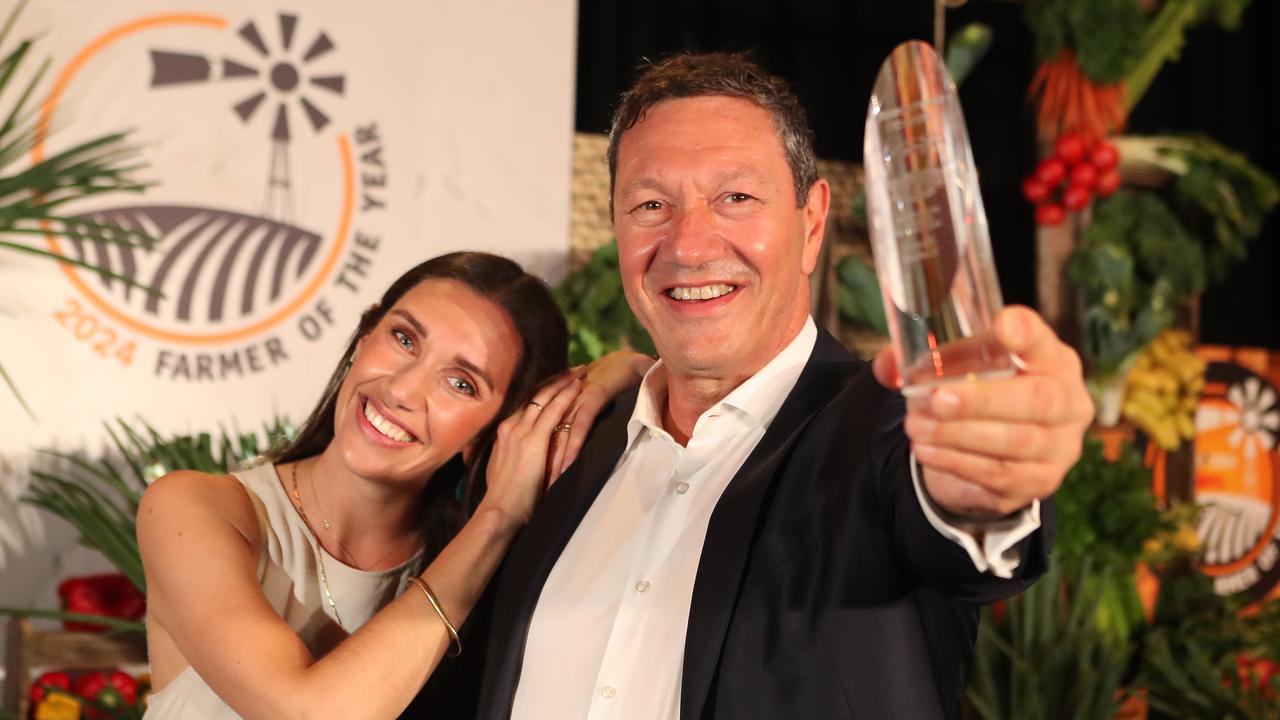Tulip business blooms for Els and Nick Bakker of TNB Tulips at Monbulk
AFTER years picking tulips for her parents, Els Bakker swore she would never marry a tulip grower.

AFTER spending her formative years “knees in the dirt” picking tulips for her parents, Els Bakker swore she would never marry a tulip grower.
But fate would intervene for the Netherlands national when she met Nick.
“He wasn’t a tulip grower when I married him,” Els said. “He was working in construction.”
Her parents, Nic and Martha Koomen, owned a tulip farm in the Netherlands before moving to Australia with their 11 children in 1968 when Els was 14.
Els’ husband, Nick Bakker, was the son of Dutch tulip growers who had moved to Australia with his family in 1960 when he was 10.
When they arrived, Dick and Judy Bakker bought a farm at Monbulk in the Dandenong Ranges and planted their first 1000 tulip bulbs.
In those days, 1000 bulbs was the maximum number that could be imported per buyer per year due to quarantine restrictions.
After marrying, Els and Nick went into business with Dick and Judy in 1980.
For the next few years the partnership produced a range of flower crops including calla lilies, chrysanthemums, gerberas, daffodils, peony roses, freesias, iris and lilies, but they decided in 1999 to focus on tulips.
“If you’re not a specialist you lose out on everything,” Els said.
New premises were built including new sheds, cool rooms and fully-automated, temperature-controlled glasshouses with the optimum conditions for tulip growing.
“This way we can ensure a topquality tulip crop will be produced for the market at any time of the year,” Els said.
Els and Nick took over TNB Tulips after Dick and Judy passed away.
Now, tulips are picked every day of the year from 4000sq m of glasshouses.
The two weeks leading up to Mother’s Day is the busiest for the business, with 400,000 stems sold.
Production winds up just before Christmas and swings back into action in early February in time for Valentine’s Day.
The company has a staff of six permanent workers and six casuals. All flowers are picked by hand, by three pickers at any given time.
Everything else is automated.
The plant beds are on an automated conveyor belt adjusted to the height of the picker.
It’s a far cry from when Els started working at her parents’ flower farm in the Netherlands. “I started off knees in the dirt picking by hand. It was hard work,” Els said.
Now, even the trimming and bunching is done by a machine the couple imported from Holland.
It sorts the flowers by size, trims the stems to a uniform size and collects same-size stems into bunches of 10. It even puts the bunches into TNB-branded plastic sleeves.
The glasshouses were installed 14 years ago and the automation came almost four years ago.
Each year the business produces six to seven million tulip stems.
During the first half of the season the bulbs are sourced from the Netherlands.
After being shipped by container from Holland the bulbs have to pass through quarantine and are then put into temporary storage.
Growing medium and sand are delivered to TNB Tulips by truck, which is then scooped into hoppers using a forklift.
The soil and sand are delivered to the planting area by conveyor belts.
Tulip bulbs are planted into the growing medium in crates and covered with sand.
After planting, the tulip bulbs are stored in cool stores until they are moved into the glasshouse, where the flowers develop over three to four weeks.
On their way to the glasshouse, the bulbs receive fertiliser and water.
The Bakkers’ main bulb supplier is Triflor in the Netherlands.
For the latter part of the season (July/August) the bulbs are grown on 6-8ha in northern Tasmania and processed at Monbulk.
Some of TNB’s experienced staff travel to Tasmania to help out with grading while further grading and processing is finalised at Monbulk.
The Tasmanian bulbs are planted at the end of April and are replanted each year until they reach an ideal size. “We want size-12 bulbs and nothing else,” Els said. “In their first year, they’re 6-8s, then they’re replanted and become 8-10s and then on their third replanting they become 10-12s.”
Nick and Els grow 40 varieties of tulips. Els took to Facebook and befriended as many florists as she could to keep an eye on what varieties are most in demand.
“Strong colours are generally the most popular,” she said.


